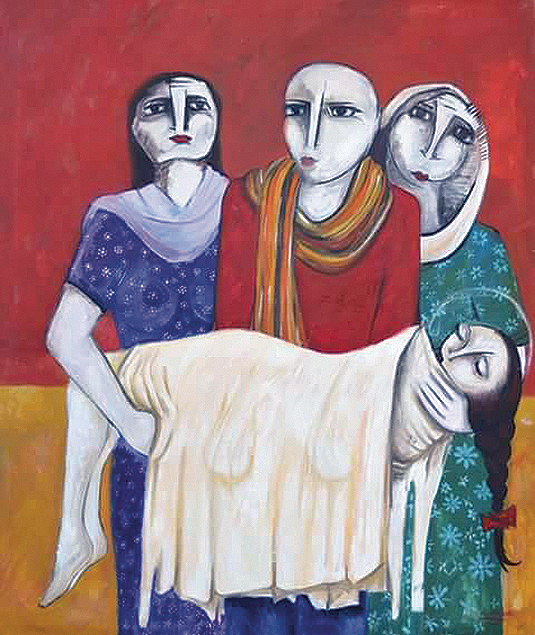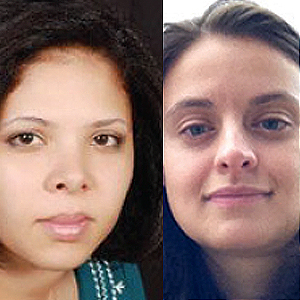
“He stole all our hopes. And those who claimed they are helping us – the women’s organization, the prison, and the shelter – they all failed to understand the meaning of life without any hope. He killed us alive [the rapist], and no one was able to punish him – no police, no prosecutor, no Ministry of Justice or Ministry of Social Affairs.”
Alia, 23 years old, a young woman from the West Bank who survived a sexual assault alongside her sister, 2013.1
A woman who has just survived a sexual or physical assault is dealing with extreme trauma. Yet, everywhere in the world, sexual and physical violence against women is one of the most under-reported types of crime. Women would rather hide the crime they have experienced than come into contact with a justice system that they fear will make them relive the trauma of their attack or even victimize them again. On an annual basis, approximately 3,000 cases of violence against women are reported to the Family and Juvenile Protection Units of the Palestinian Civil Police. The percentage of women who report having experienced domestic violence amounts in the West Bank to 30 percent of women who are or have been married, and in Gaza this number reaches even 51 percent.2
The Palestinian Government is currently establishing a new model to provide protection, privacy, and dignity to women and children who have experienced violence. This model is a center staffed by specially trained police officers (including female police officers), social workers, and specialized NGOs providing care to victims. The center also has specialized prosecutors, nurses, and doctors on call at all times.
This model of a One-Stop Center is designed to facilitate immediate access to critical-care services for survivors of violence in the immediate aftermath of their trauma. It co-locates staff from these services in one location so that a victim of violence does not bounce between a police station, a health care center, a prosecutor’s interview room, a social worker’s office, and various NGOs looking for help. It also provides a temporary 24-hour safe place to stay, if needed.
To provide expertise, support, and monitoring requires a high level of coordination and cooperation between the relevant government agencies that include the Palestinian Civil Police, the Ministry of Health, the Ministry of Social Development, and the Attorney General’s Office, as well as the close involvement of civil society. Civil society is also a critical link to the national referral system for victims to ensure that once the woman leaves the One-Stop Center, which was her point of first contact with the justice system, she has a clear plan in place for the longer term, whether that involves taking her case forward in the justice chain, a longer stay at one of the Palestinian anti-violence shelters, or a care plan for psychosocial counseling and vocational training to support her to get back on her feet and achieve independence for herself and her children.
♦ Key guidelines for establishing and running
one-stop centers.• All service providers should receive specialized training in working with women and children victims of sexual and physical violence.
• A protocol should be developed among the various service providers to determine a set of procedures for supporting victims.
• Tight safety and security measures should be put in place to ensure victim safety and prevent perpetrators from accessing the center.
• Privacy, confidentiality, and dignity for victims should be ensured as well as the secure management of records.
• Community dialogue and outreach activities should be developed in partnership with civil society to provide the wider population with information about the purpose of the center, available services, and access.
• Commitment should be secured from the institutional stakeholders for the center to be sustained and financed over the longer term.
For the One-Stop Center to achieve its goals, there are three key components that need to be addressed: sufficient resources must be invested for successful functioning; a policy framework must be signed at the national level between key stakeholders; and the service providers within the center must have ongoing specialized training.
Regarding the first component, the relevant agencies have to show commitment to secure the required financial, material, and human resources, and secure co-location and on-call availability. This requires senior-level political will within the relevant agencies and ministries regarding the model that the center represents and an understanding of its importance for victims and of the role of the justice system as a service provider.
The second component refers to a joint understanding of the model among all stakeholders at the national level. This requires a policy framework (possibly through signing memorandums of understanding) at the national level between key stakeholders and specific facility-level standard operating procedures to ensure that the role of each service provider is clear, that coordination is well defined, and that existing protocols ensure that infrastructure is maintained and that it supports integration and linkages in a sustainable manner.

The third component critical to success is the ongoing capacity development of all service providers within the One-Stop Center. Staff must receive continuous specialized training to examine their own attitudes and behaviors towards the vulnerable women and children who use the center’s services; to adopt a coordinated and holistic approach; and to harmonize a monitoring system that is also confidential and ethical following the collection of data.
The Palestinian government has significant accomplishments of cooperation and coordination at the national policy level to combat violence against women upon which to build a functioning One-Stop Center: the national referral system for women victims of violence (Takamol); the National Committee to Combat Violence against Women; the national strategy to combat violence against women; the new juvenile protection law; the draft family protection law; the Mehwar shelter run by the Ministry of Social Development; and the serious case review mechanism for examining the handling by all relevant agencies of cases of violence against women that tragically result in death.
Under the UN Women/UNDP Joint Programme for Strengthening the Rule of Law in Palestine (SAWASYA), UN Women and UNDP are supporting a number of efforts by the Palestinian government in the security and justice sectors, including operationalizing the One-Stop Center model. An existing building in Ramallah is being refurbished for this purpose and will be administered by the Family and Juvenile Protection Unit. The building will include a private reception area, a comfortable room for specialized police officers to support victims and take statements, a medical exam room, 24-hour accommodation for both male and female on-call service providers, as well as 24-hour emergency accommodation for women and children victims, a lounge room, a play area for children, offices, an interview room with video-recording facilities for use of prosecutors, and comfortable rooms for counseling sessions and legal aid provision.
UN Women and UNDP congratulate government stakeholders on their commitment towards making this model a reality and ensuring that Palestinian women and children who are victims of violence have a positive experience in their point of first contact with the justice system and that no woman ever again comes into contact with all these stakeholders without experiencing the understanding, support, and sympathy that Alia and her sister deserved.
» Bisan Abu Roqti Mousa is the Women and Women’s Security Analyst at UN Women and UNDP Joint Programme of SAWASYA.
» Ana Lukatela holds a PhD in political science and is currently the Protection Specialist in the UN Women Palestine Country Office.
1. UN Women, Access Denied: Palestinian Women’s Access to Justice in the West Bank of the occupied Palestinian territory, available at http://palestine.unwomen.org/en/digital-library/publications/2014/12/accessdenied.
2. Palestinian Central Bureau of Statistics, Press Release: Main Findings of Violence Survey in Palestinian Society, 2011, available at http://www.pcbs.gov.ps/Portals/_pcbs/PressRelease/el3onf2011_E.pdf.


